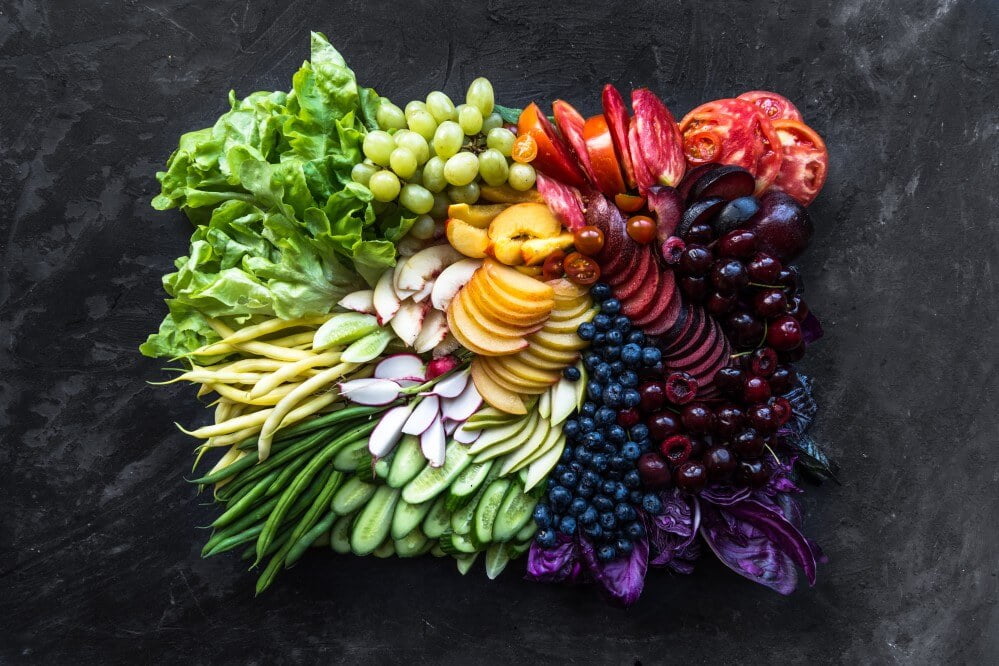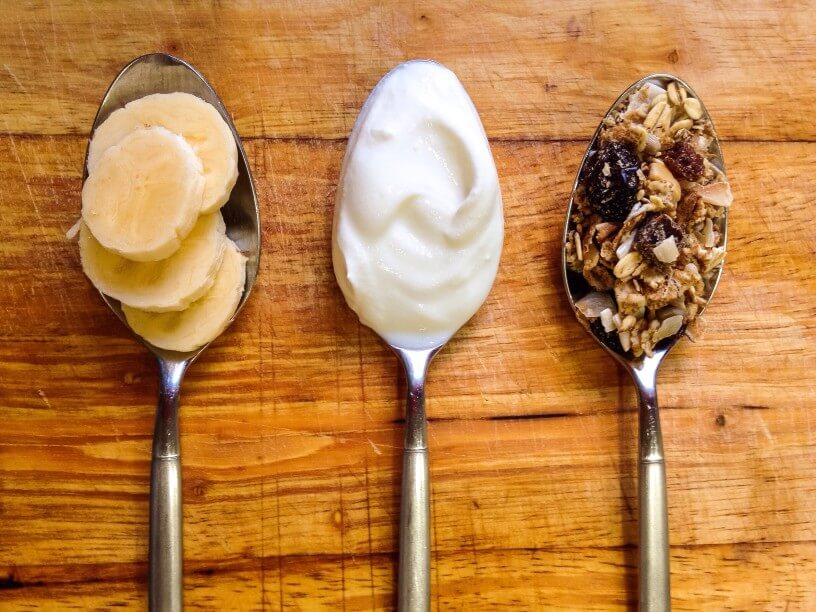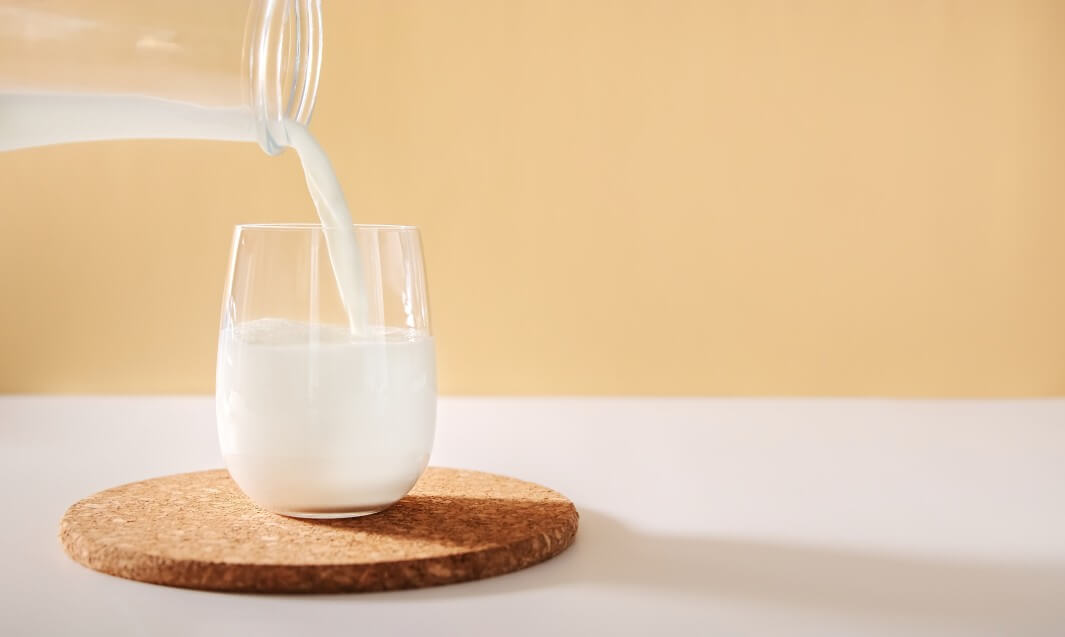Preparing for a colonoscopy can be daunting, and you’re worried enough about the procedure. On top of that, you’ll need to follow a specific set of dietary instructions for up to five days before the procedure.
Almond milk is fine for most people to drink for up to two days before a colonoscopy. When you receive your patient education for the three-day low residue diet, you’ll often see that almond milk is listed as a “can consume” food.
The only time you’ll need to stop drinking this non-dairy drink is 24 hours before the procedure when you switch to a clear liquid diet.
Read this article to take the stress out of prepping for a colonoscopy.
Find out what foods you can eat, when you can eat them, and what terms such as “low residue diet” and “clear liquid” really mean.
What Is A Low-Residue Diet?
When preparing for a colonoscopy, you will follow a low-residue diet for a short period, beginning three days before your procedure. During this time, you will need to avoid certain foods entirely, including:
Fruits and vegetables
Seeds, nuts, and legumes
Pulpy juices
In addition, you can consume no more than two cups per day of milk and milk products.
This low-residue diet helps reduce the amount of food remaining in your bowel after eating.
And this helps the physician to get a clearer picture of your bowel during a colonoscopy.

Which Dairy Foods Can I Eat On A Low Residue Diet?
When following a low-residue diet, you’ll need to keep your dairy intake to a maximum of two cups per day and avoid milk products altogether if you are lactose intolerant.
Recommended foods and foods to avoid are detailed below, as per the advice of medical professionals.
Recommended Dairy Foods
Milk, buttermilk, or lactose-free milk
Regular or lactose-free yogurt
Mild or cottage cheese
Lactose-free cottage cheese
Dairy Foods To Avoid
Any product with seeds or nuts (in whole form)
Any product with chocolate or granola mix-ins

Can I Consume Dairy And Non-Dairy Products While I’m On A Low Residue Diet?
Dairy products are okay in moderation.
They don’t contain any fiber, which is good, but they can increase residue in the colon and increase stool size.
Additionally, they can cause cramping and diarrhea if you are lactose intolerant.
Can You Drink Almond Milk The Day Before A Colonoscopy?
You cannot drink almond milk the day before a colonoscopy as you’ll be on a clear liquid diet. This means that you must be able to see through everything you drink.
Twenty-four hours before your procedure, you may drink beverages such as water, iced tea, non-pulpy fruit juices - apple, lemonade, or white grape, tea, and Kool-aid.
You may also consume food items such as clear broth, Jell-O (without toppings), popsicles, and clear hard candies.
You must not drink any dairy or non-dairy products such as milk, almond milk, rice milk, or soy milk. If it’s not clear or has anything that needs chewing, you can’t consume it.

Interested in learning more about almond milk? Check out our video below!
FAQ
Can you have almond milk five days before a colonoscopy? How about three or two? Continue reading to discover the answers to some frequently asked questions.
Can You Have Almond Milk 2 Days Before Colonoscopy?
While you’re on the low residue diet, you can drink up to two cups of dairy and non-dairy per day.
However, you’ll need to cease consuming when you switch to a clear liquid diet. This is generally 24 hours before your procedure - but consult with your medical practitioner for precise instructions.
Can You Have Almond Milk 3 Days Before Colonoscopy?
You'll need to begin a tailored diet three days before a colonoscopy.
This diet will limit you to no more than 10-15g of fiber per day, while reducing foods that stimulate activity in your bowel.
The aim of a diet such as this is to reduce bowel movements in both frequency and size prior to your procedure.
It shares some characteristics of a low fiber diet but also works to limit the amount of non-fiber foods like dairy and milk.
The reason that dairy and non-dairy foods are limited is that they have the potential to increase the rate and size of your bowel movements.
Can You Have Almond Milk 5 Days Before Colonoscopy?
You can continue eating normally five days before the procedure. Still, doctors recommend tweaking your diet for a couple of days before starting a low-residue diet to help your body adjust to the cleansing process.
The best way to do this is by consuming plenty of low-fiber foods, which are easily digestible and leave the body quickly.
During this time, try to eat plenty of lean meat, eggs, well-cooked vegetables without their skin, white bread, rice, and pasta.
Meanwhile, avoid fatty foods, whole grains, raw vegetables, corn, broccoli, cabbage, seeds, and nuts.
Can You Have Almond Milk A Week Before Colonoscopy?
You can follow a completely normal diet a week before your colonoscopy procedure, though there are some essential steps you may want to take to plan for your procedure.
Talk to your doctor about the best way to prepare and call them if you have any questions along the way.
Clear your schedule 24 hours before your procedure and organize someone to go with you on the day of your procedure.
A week before a colonoscopy is also a good time to shop for crucial supplies such as the laxatives prescribed by your doctor, low-fiber foods, sports drinks, broths, and moist wipes.
Related: Can Almond Milk Cause Constipation?
Final Thoughts
When preparing for a colonoscopy, you’ll need to restrict your food intake to a low-fiber, low-residue diet that reduces the size and frequency of your stools.
You may drink up to two glasses of almond milk (or other dairy alternatives) during this time.
However, 24 hours before your procedure, you’ll switch to a clear liquid diet, and at this point, you’ll no longer be able to drink any milk or milk substitutes.
If you’re in any doubt, the best thing to do is consult your physician.
They can provide you with a complete list of foods you can eat.
